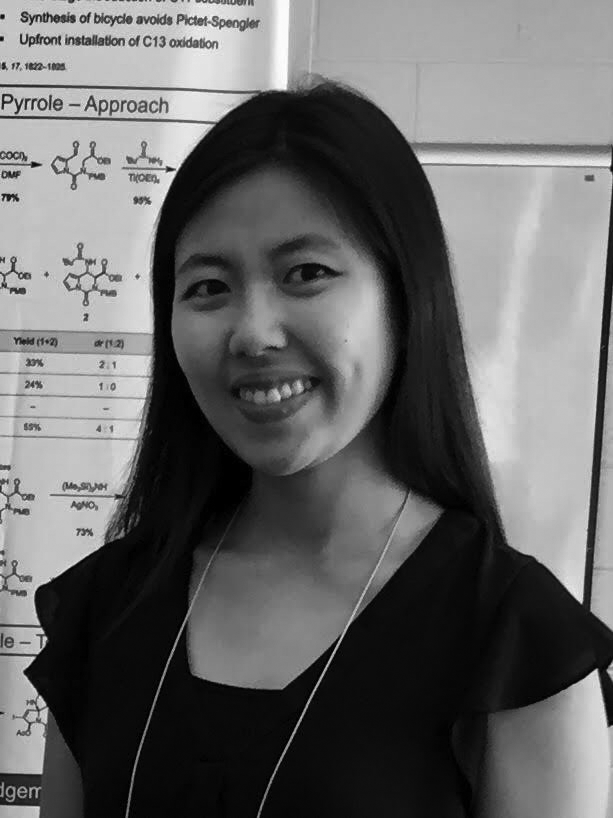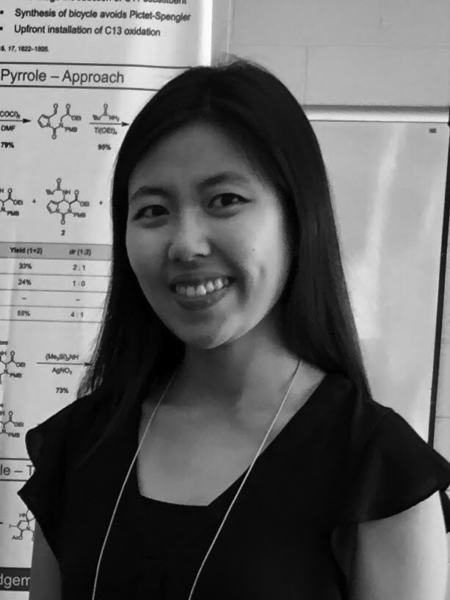

For most people, the ultimate fighters against diseases, such as COVID-19, are frontliners like doctors and nurses. However, medical researchers also join this cause by discovering antiviral drugs for faster patient recovery. Dr. Doris Tang, a medicinal chemist at Gilead, a major biopharmaceutical company, is one of them.
As a medicinal chemist, Tang designs and tests molecules that contribute to drug development. Her job is a cycle of designing, experimenting and analyzing.
“Sometimes we have [chemical or project] meetings interspersed throughout the day, but usually I’ll get into the lab [and] … check on some of the reactions that I had from the night before,” Tang said. “I’ll check [new] data to see if there are any compounds that came back with really interesting properties that I think might be useful to keep testing hypotheses with. Sometimes I have already thought of some compounds I want to make that day, so I’ll set up those reactions. In the afternoon, when some of the reactions are done, I’ll purify them or set up [new ones] … depending on [the results].”
This research process comes with its challenges and setbacks. There are various situations Tang must account for during her job.
“You might design a certain compound that’s really hard to make, or you might [not get] … the answer you were hoping for,” Tang said. “It’s like a double-edged sword. It’s really rewarding, because it’s so hard but at the same time, because it’s hard, sometimes it gets a little frustrating.”
Tang noted a few qualities that help overcome these challenges during the job.
“Having grit and believing in what you’re going after and being willing to chase after it [helps],” Tang said. “I’ve [also] … seen that creativity helps, whether you are designing compounds or thinking of different ways to improve [them].”
Moreover, balancing work with life significantly impacts productivity and the design process.
“I watch some TV [and] do some painting,” Tang said. “I can’t help it sometimes, but I try not to think about work when I’m at [home], just to give my brain a break … [to] come up with better solutions.”
Besides spending most of her time in the lab, Tang also works in an office environment where good communication and teamwork are essential.
“We all work around each other, so it’s really easy to go and talk to somebody and ask their opinion about some reaction that they’ve run or some other issues that you have that they might be able to solve,” Tang said.
Although the pandemic has significantly impacted the lives of many, Tang’s unique work routine and environment have been relatively stable.
“I’ll do some [Zoom] meetings from home sometimes, but day to day you have to be in the lab to make compounds,” Tang said. “We can’t do [much] work from home, at least in terms of chemistry.”
The routine, environment and demands of her job suit Tang very much. She was glad that she chose the right career to fit her interests. She recalled back to her original motivation for becoming a medicinal chemist.
“Growing up, I did all sorts of arts and crafts like Legos,” Tang said. “I think that really helped [me decide], because [those activities] also applied to chemistry. … [It’s] cool to think about how I should piece [certain molecules] together [just like with Legos].”
Tang attended the University of British Columbia, which provided her with valuable opportunities to explore this vast field.
“In UBC, there’s a [program] … called a co-op that includes 16 months of internships,” Tang said. “I did eight months of fuel cell research, and I also did a couple of months of drug discovery.”
Those 16 months provided Tang deeper insight into the chemistry field.
“[Internships] help you figure out what you want to do in the future,” Tang said. “I really liked the fuel cell job, but at the end of the day, I realized that I didn’t want to do that for my real job, and I had a lot more fun doing medicinal [chemistry].”
Tang offered some final words for aspiring chemists.
“[Remember], doctors aren’t … the ones who make drugs,” Tang said. “They’re the ones who prescribe drugs, but who has to go make these drugs? It’s chemists. [You can] help a lot of people and [not] have to become a doctor [to do so]. Along the way you can make stuff with your own hands, which is the most fun part.”



